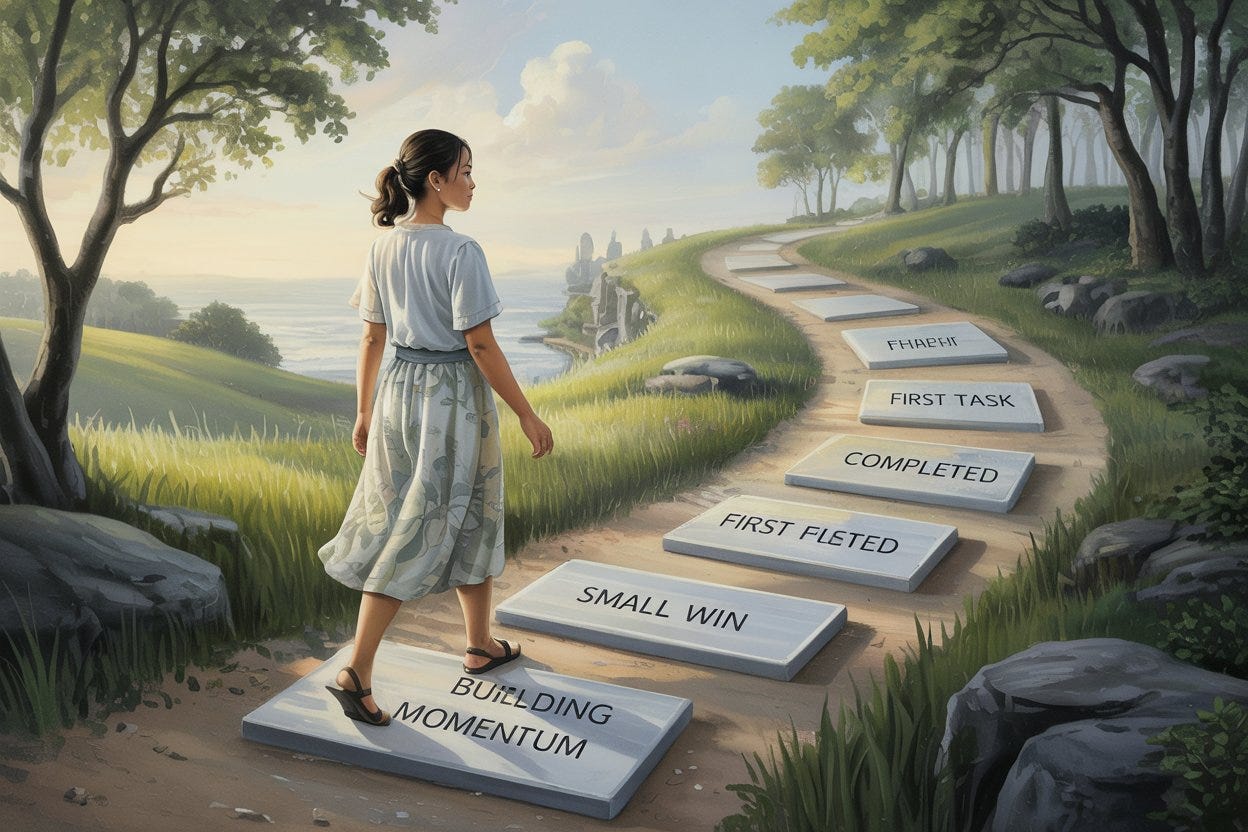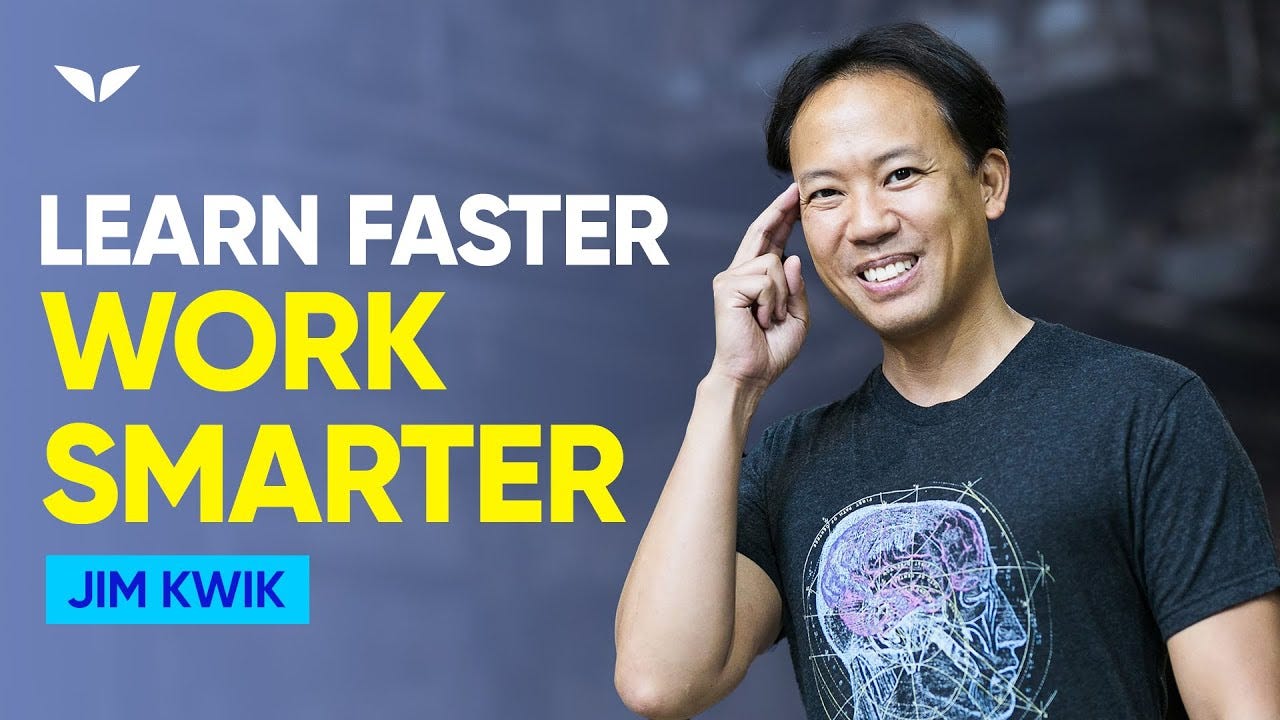Life Happens: How I Learned to Follow Through (Even After Getting Derailed)
Life Derailed Your Goals? Here's How to Follow Through & Regain Momentum
We've all been there, right? You hit a groove, you're making fantastic progress towards your goals – maybe it's fitness, learning a new skill, or building that side hustle. You feel the momentum, the excitement... and then *life* happens. A bout of flu knocks you out, a long-planned trip takes you off routine, demanding interviews pop up, or a flurry of special events eats up your time and energy.
Suddenly, that carefully built momentum vanishes. The routine breaks. Getting back on track feels like pushing a boulder uphill.
This was exactly my experience recently. I was genuinely excited about the steps I was taking towards greater happiness and fulfillment. But a combination of sickness, travel, intense case study interviews, and social commitments completely derailed me. The frustration was real. How could I rebuild that momentum and, more importantly, learn to *follow through* even when life throws curveballs?
I want to share what worked for me, some wins I'm proud of, and insights from experts that might help you too.
Finding My Footing Again: Small Wins & Smart Systems
When I felt overwhelmed and off-track, I realized I couldn't just jump back into my old, ambitious routine. I needed a different approach. Here’s what made the difference:
1. Starting Small for Big Confidence: I decided to focus on achievable wins. For me, this meant diving into AI and Machine Learning courses online. These were topics I was passionate about, and gaining certifications felt like concrete progress. Each completed module and earned certificate wasn't just a line on my resume; it was a boost to my confidence, proving I *could* still learn and achieve things.
2. Building a Flexible Learning Routine: Small wins are great, but consistency is key. I started building a routine around learning. This included joining Microsoft’s AI Learning Community, where I engaged in hands-on learning alongside a passionate and motivated group—an experience that ultimately reignited my efforts on this blog! Listening to books also became something I could do even when I wasn't feeling 100% or had limited time – during commutes, while doing chores, or even resting. Learning became bite-sized and adaptable, keeping the feeling of progress alive.
3. Making My Calendar My Command Center: Like many people, I had to-do lists. The problem? They often felt separate from my actual schedule. Inspired by Nir Eyal's work, I started integrating my to-dos directly *onto my calendar*. Using timeboxing – allocating specific blocks of time for specific tasks – meant that "work on course module" or "listen to audiobook chapter" wasn't just an item on a list; it was a scheduled appointment with myself. This drastically reduced procrastination and helped me manage my time more effectively.
4. The Power of Connection: Progress isn't just about tasks; it's also about people. I made a conscious effort to maintain and cultivate relationships within my professional network. Staying connected, sharing insights, and offering support kept doors open. Ultimately, these connections played a crucial role in landing my latest exciting opportunity: becoming a Principal Product Manager for the OneAI team at ADP!
Celebrating the Wins: Proof in the Pudding
Following these methods didn't just make me *feel* better; it yielded tangible results:
Certifications Secured: I successfully earned multiple AI and Machine Learning Specialization certifications, validating my knowledge and boosting my professional profile.
Dream Job Achieved: The combination of skill-building, confidence gains, and networking culminated in achieving my goal of landing a fantastic job in a field I'm passionate about.
These wins reinforced that focusing on small, consistent steps and using smart systems really works.
Keeping the Momentum: Insights from the Experts
My journey got me curious: what does research say about getting back on track after being derailed? Beyond my personal experience, here are some science-backed strategies:
Practice Self-Compassion: It's easy to beat yourself up when you fall off the wagon. Research shows that self-criticism is demotivating. Instead, acknowledge the setback without judgment (like you would comfort a friend) and gently guide yourself back to your routine.
Use Implementation Intentions: Vague goals are easy to abandon. Try the "If-Then" technique developed by psychologist Peter Gollwitzer. Frame your plan like this: "IF [trigger situation occurs], THEN I will [perform desired action]." For example: "IF I finish dinner, THEN I will open my course platform for 15 minutes." This makes the action more automatic.
Re-Design Your Environment: Make following through easier. If you want to restart your morning workout, lay out your clothes the night before. If you want to read more, put the book on your pillow. Make the path of least resistance lead towards your goal (a concept championed by James Clear in Atomic Habits).
Lower the Barrier to Re-entry: Don't feel like you need to jump back in at 100%. Just start *again*, even if it's tiny. Meditate for 1 minute instead of 10. Read one page instead of a chapter. The act of restarting is often the hardest part.
Find an Accountability Partner: Sharing your goals and progress with someone else can provide powerful motivation and support, especially when you're trying to rebuild momentum.
My Follow-Through Toolkit: Resources That Helped
Along the way, a couple of books were particularly influential:
Limitless by Jim Kwik: This book was a game-changer for my mindset. Kwik breaks down learning into Mindset (believing you can), Motivation (having purpose), and Methods (how to learn effectively). It powerfully argues that our learning potential isn't fixed and our brains are capable of growth at any age. It also offers practical strategies for boosting energy and reclaiming time – crucial when you're feeling drained.
Indistractible by Nir Eyal: This book provided the tactical framework for managing my time and focus. The concepts of Timeboxing (deciding what you'll do and when) and using your Calendar as a primary tool for scheduling *all* your intentions (not just meetings) were incredibly helpful in moving from vague plans to concrete actions.
You Can Get Back on Track Too!
Getting derailed by life is normal; staying derailed doesn't have to be. My journey taught me the power of starting small, building flexible routines, using smart systems like calendar integration, and nurturing connections. Combined with insights on self-compassion and planning, it's entirely possible to regain momentum and keep moving towards your goals.
Don't be discouraged by setbacks. See them as opportunities to learn, adapt, and find strategies that truly work for *you*. You've got this!
Resources:
Limitless: Upgrade Your Brain, Learn Anything Faster, and Unlock Your Exceptional Life by Jim Kwik
Indistractable: How to Control Your Attention and Choose Your Life by Nir Eyal
Timeboxing: Why It Works and How to Get Started in 2024 by Nir Eyal
Atomic Habits: An Easy & Proven Way to Build Good Habits & Break Bad Ones by James Clear











